Few figures in science have pierced the popular imagination or made more fundamental scientific contributions like renowned theoretical physicist Albert Einstein. He wrangled with complex data about the construction of the universe and yielded mathematical models depicting its function. Yet he was also a musician, an artist and a lover of dance.
“The true sign of intelligence,” he once said, “is not knowledge, but imagination.”
At the business school, as part of a great university, we are in the knowledge business. We create it, we transmit it, we leverage it with our community partners. And I’d like to think we’re continuing to create a workplace that sparks the imagination of our colleagues.
Complementing the inspiring architecture of Olin Business School, we’ve begun to introduce new images to adorn its walls. I wanted to share a little about these works and the people behind them.
They include the works of Ann Wimsatt, a St. Louis-based artist whose work I encountered at an exhibition soon after arriving at Olin. Her work now lines parts of the fourth and fifth floors of Knight Hall and Bauer Hall, as well as parts of the second floor in Simon Hall.
In Ann Wimsatt’s work, I was struck by three things. First, her images are extremely international, depicting significant architectural landmarks in locations such as Mumbai, Barcelona, London, Siena, Hong Kong and more—as well as St. Louis. Second, they are subjective interpretations of the buildings and landmarks they depict. And third, they are vibrant splashes of color that turn a corridor into an artist’s palette as we walk along, before stopping to look at the details of any particular one.
“Sometimes the most glorious endeavors of a civilization are what they create in their cities,” said Wimsatt, who is also an architect. “I’m quite interested not only in what meaning and importance they might have to me as I paint them, but also, as I manipulate them digitally, what kind of meaning I can draw out of them.”
Olin visitors will also notice a new series of works by my friend and colleague Carmon Colangelo, the Ralph J. Nagel Dean of the Sam Fox School of Design & Visual Arts. Carmon graciously showed me around and introduced me to the art scene in St. Louis soon after my arrival and we spent a lot of time discussing art in his studio and in galleries around the area.
Several of Dean Colangelo’s works hang in and immediately outside my office—and there will soon be several new ones displayed prominently in the Kiefer Foyer in Simon Hall. Those closer to my office tend toward the symmetrical and orderly, but the farther from my office they get, the more the works take on their own character and depart in subtle but significant ways from the central works. I view it as something of a metaphor for the academic freedom we enjoy on the WashU campus.
“I made a new series that was inspired by the concepts in the first versions of the stretched colorfield images,” Colangelo said. “I like the analogy Dean Taylor has made about innovation and faculty research responding with more radical variations on this theme.”
Our very existence as a highly ranked business school depends on the ways we foster collaboration and imagination in the service of the knowledge we create. How do we infuse creativity into a business school? Perhaps by osmosis? I’m rather hopeful that we’ll see our students, visitors and faculty members take time to pause and appreciate the new works adorning the halls and to become inspired by their environment.
Pictured above: Dean Taylor with Dean Colangelo and a selection of his works that will appear in various parts of Olin Business School.


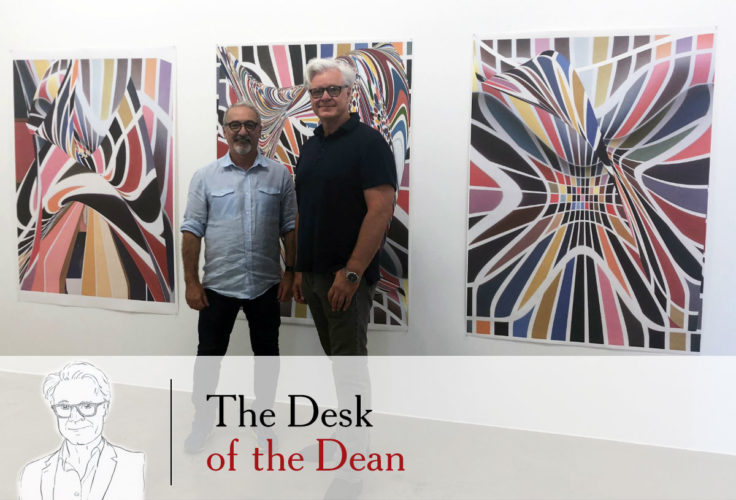
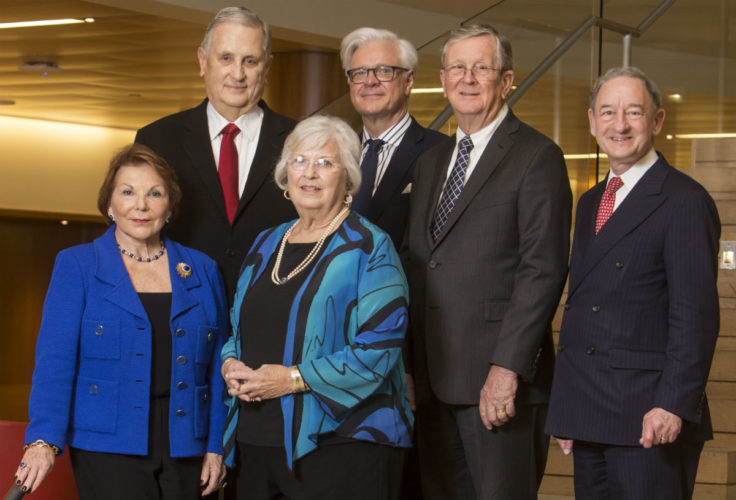
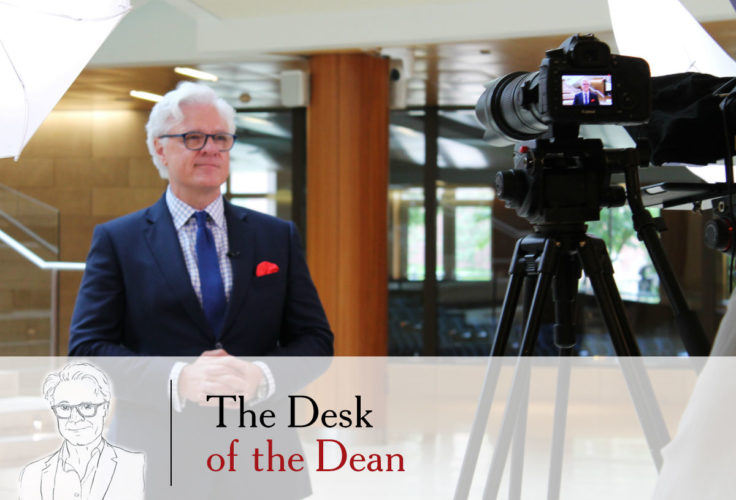
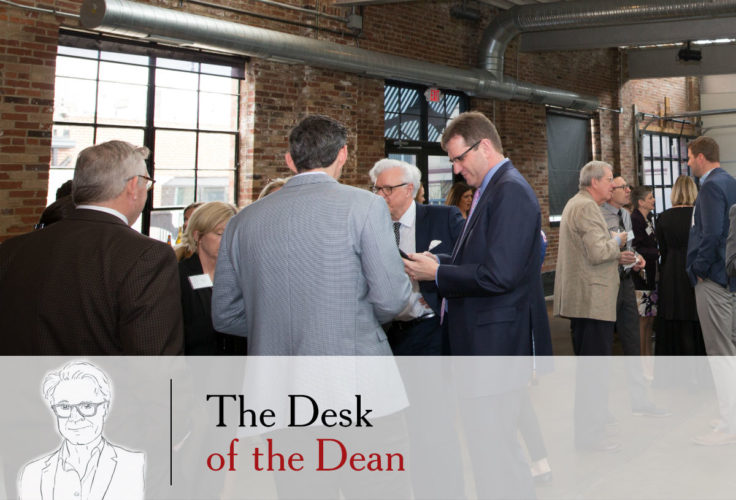
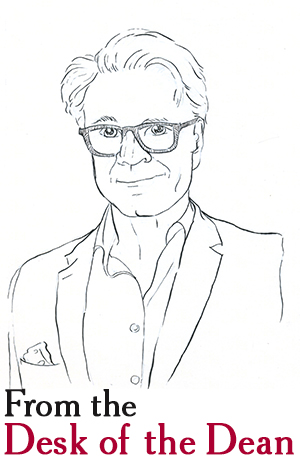 Welcome to the debut of “The Desk of the Dean,” a monthly feature of the Olin Blog by Dean Mark P. Taylor. This column will appear on the first Wednesday of each month.
Welcome to the debut of “The Desk of the Dean,” a monthly feature of the Olin Blog by Dean Mark P. Taylor. This column will appear on the first Wednesday of each month.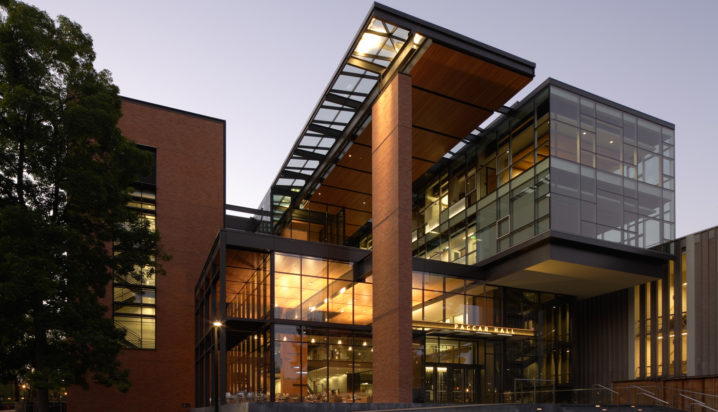

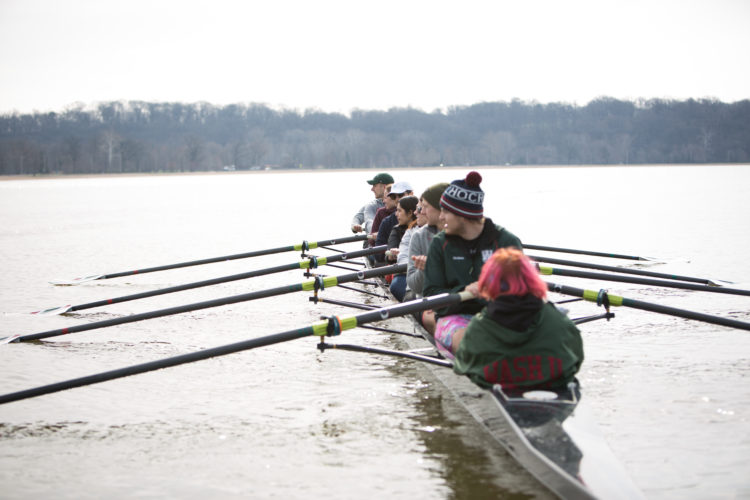
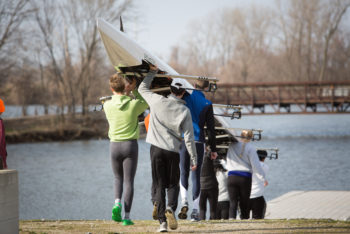 The Bauer Leadership Fellows Program provides experiential leadership development for team leaders who lead CEL practicum teams. Recently, the BLC fellows had the opportunity to go to Creve Coeur Lake for a leadership development rowing retreat. BLC fellows reflect back on what they took away from the rowing experience.
The Bauer Leadership Fellows Program provides experiential leadership development for team leaders who lead CEL practicum teams. Recently, the BLC fellows had the opportunity to go to Creve Coeur Lake for a leadership development rowing retreat. BLC fellows reflect back on what they took away from the rowing experience.